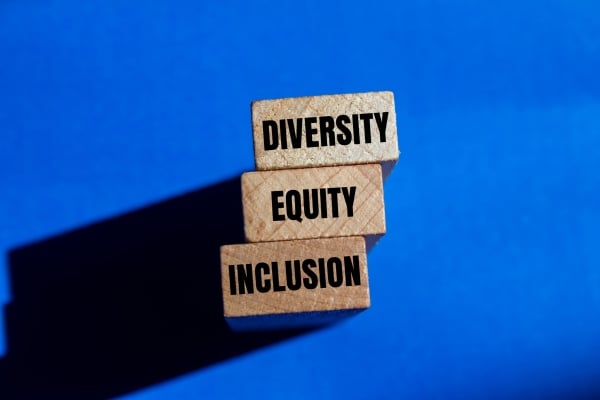News
Academic freedom requires DEI; the AAUP gets it (opinion)

Emre Akkoyun/iStock/Getty Photos Plus
Trump is coming for increased schooling. His congressional allies are already armed with measures like HR 6848, which might ban universities from inviting statements that doc a professor’s “previous or deliberate contributions to efforts involving range, fairness, and inclusion.” Outlawing DEI statements is smart for a president who likes to vilify America’s universities and discredit their democratic commitments. What may be much less apparent is that payments like HR 6848, as a result of they curtail college autonomy and undermine DEI initiatives, threaten certainly one of increased schooling’s most sacred values: educational freedom.
The American Affiliation of College Professors will get it. In a latest assertion, the AAUP defined why DEI statements needn’t battle with, and sometimes fortify, educational freedom. Albeit much less of a spotlight, the AAUP additionally surfaced why anti-DEI legal guidelines—together with DEI assertion bans—precise a double toll on educational freedom.
Tutorial freedom can’t be divorced from the college’s core mission: To pursue reality and data for the frequent good, which requires the free trade and essential analysis of competing concepts. To understand this mission, universities should typically be free from exterior interference and the college will need to have energy to manipulate—notably over issues of direct educational concern like hiring and promotion. This explains why the AAUP, even because it defends DEI statements, highlights that the college should participate in figuring out their use: “This collective school duty contains deciding whether or not to undertake using DEI statements, what points school members might be requested to handle in such statements, and the way such statements might be utilized in school analysis.”
School energy and college autonomy is exactly what payments like HR 6848 undercut. Related issues would come up had been a college governing board or president to ban each division from inviting its personal candidates to submit DEI statements. In each circumstances, school are denied energy over a key web site of educational governance.
Tutorial freedom is likewise threatened when politicians, donors or company pursuits train outsize management over the college’s affairs. Current examples abound. Republican governor Ron DeSantis executed a hostile takeover of New School of Florida inside a broader marketing campaign to remodel Florida’s college system into an arm of the state. Albeit much less systematic, Democratic governor Josh Shapiro appears to have steered the College of Pennsylvania’s crackdown on pro-Palestinian protests—even perhaps enabling the ouster of Penn’s former president.
Company takeovers at establishments like George Mason College current a distinct model of this story. Over a latest 10-year interval, an estimated $100 million in Koch-backed donations remodeled components of the once-quaint public college right into a “free market” assume tank that serves its billionaire industrialist benefactors. And since 2017, after Leonard Leo helped dealer $30 million in donations to rename the college’s regulation college, the college now often called Antonin Scalia Legislation has obtained yearly $4 million items from DonorsTrust, as soon as dubbed “the dark-money ATM of the conservative motion.”
The threats to educational freedom ought to be apparent when exterior actors strip school energy and co-opt the college to entrench partisan energy, push private agendas or maximize company achieve. Because of this alone, DEI assertion bans—as a result of they deprive school of the authority to find out the standards that govern hiring and promotion—erode educational freedom. A part of the reply requires democratizing governance inside our personal universities, which Timothy Kaufman-Osborn has aptly termed “autocratic academ[ies].”
However even when school reclaim energy from the “absentee lay board of trustees,” a separate query is whether or not DEI standards ought to issue into personnel selections. The quick reply is sure, partially as a result of DEI contributions additional the college’s mission by cultivating the sorts of mental environments the place the open and demanding analysis of competing concepts is almost certainly to flourish.
What’s “one other technique to describe increased schooling’s core mission”? In response to Stanley Fish, the reply is “good scholarship and good pedagogy.” Critics of DEI statements have a tendency to put DEI someplace exterior of—if not opposite to—good scholarship and good pedagogy. That view is mistaken.
The perfect pedagogy and scholarship can not happen with out attending to paradigmatic DEI issues. Within the classroom or lab, the very best educating essentially cultivates a studying setting free from societal stereotypes and stigma that, if left unaddressed, undermine studying, depress engagement and restrict discourse. This may entail selling a progress mindset, invoking countertypical exemplars or designing a bodily area free from gendered norms. The perfect educating additionally equips college students to identify and interrogate their very own presumptions that, if left unchecked, can compromise even probably the most well-intentioned evaluation.
The identical goes for the very best scholarship, which should attend to the biases and heuristics that may infiltrate one’s personal analysis and impair whole disciplines. Step one requires conceding that we (the teachers, departments and establishments) are not often as goal and impartial as we aspire to be—in ways in which systematically undervalue the work and contributions of students from teams traditionally excluded from, and sometimes denigrated by, the academy.
Fairly merely, school do their greatest educating and scholarship (to not point out service) after they actively nurture institutional cultures free from bias and harassment. No matter their label, these contributions sit on the coronary heart of school “benefit” as a result of they sharpen analytical pursuits and counter dynamics that in any other case stifle the voices greatest positioned to determine and bother prevailing orthodoxies. From this vantage level, DEI statements comprise a common sense software to credit score school for doing the work that “good scholarship and good pedagogy” already entails. Thus DEI assertion bans do greater than usurp energy and undermine inclusion. Additionally they hinder the open inquiry and demanding evaluation we now want greater than ever.
-

 News3 weeks ago
News3 weeks agoMichael Vick says he will be the new head football coach at Norfolk State : NPR
-

 News4 weeks ago
News4 weeks agoMan City vs Man United player ratings: Marks out of 10, analysis of Manchester derby
-

 News4 weeks ago
News4 weeks ago‘Red One’ Is Now Streaming—How To Watch The Rock’s Christmas Movie At Home
-

 News3 weeks ago
News3 weeks agoMufasa: The Lion King – six key things to know before watching the prequel | Ents & Arts News
-

 News4 weeks ago
News4 weeks agoSeveral hundred feared dead after Cyclone Chido
-

 News3 weeks ago
News3 weeks agoMichael Vick to become Norfolk State’s head football coach
-

 News4 weeks ago
News4 weeks agothis Dwayne Johnson flop demonstrates Hollywood’s longstanding problem with Christmas
-

 News4 weeks ago
News4 weeks ago‘It wasn’t there tonight’: Canucks suffer most mystifying loss yet
